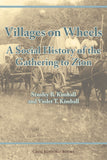News
Dime Novel Mormons awarded Best Anthology at JWHA September 24 2018

Congratulations to Michael Austin and Ardis E. Parshall for Dime Novel Mormons winning the Best Anthology Award at the 2018 John Whitmer Historical Association meeting!
To celebrate the award, we are offering all titles from the Mormon Image in Literature series for 30% off from Sep 24 through Sep 28. Use discount code DIMENOVEL at check out to get the discount.*
|
$22.95 |
$15.95 |
$12.95 |
*Offer valid for US domestic customers only. Limited to available inventory. Ends 9/28/18.
2016 AML Awards two outstanding Greg Kofford Books titles! April 24 2017
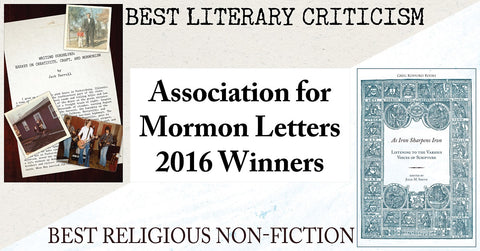
The Association for Mormon Letters held its annual meeting this past weekend, April 22-23, 2017. This year, the event was held at Utah Valley University in Orem, UT. The keynote speaker was Phyllis Barber, author of eight books and winner of the Smith-Pettit Foundation and the Association for Mormon Letters Award for Outstanding Contribution to Mormon Letters. Acclaimed science fiction author Orson Scott Card and renowned poet and short-story author Susan Howe, were also presented with AML Lifetime Achievement Awards.
Among the winners at the AML Awards Ceremony were two Greg Kofford Books titles: As Iron Sharpens Iron: Listening to the Various Voices of Scripture, edited by Julie M. Smith, won the 2016 Best Religious Non-fiction Award. From the citation:
As Iron Sharpens Iron: Listening to the Various Voices of Scripture, edited by Julie M. Smith, won the 2016 Best Religious Non-fiction Award. From the citation:
“As Iron Sharpens Iron provides an excellent study on the challenges found in the Mormon scriptural cannon in a manner that is very intriguing and is sure to challenge Mormon readers to rethink how they approach their scriptural studies and thought.”
 Writing Ourselves: Essays on Creativity, Craft, and Mormonism, by Jack Harrell, won the 2016 Best Literary Criticism Award. From the citation:
Writing Ourselves: Essays on Creativity, Craft, and Mormonism, by Jack Harrell, won the 2016 Best Literary Criticism Award. From the citation:
“A worthy successor to the work of Eugene England. . . . At his most engaging, Harrell speaks bluntly, knowingly, and aspirationally regarding the plight of the serious Mormon writer, and by extension, their audience. His advice to writers to be honest and to embrace their weirdness, among other things, seeks to reframe the discussion of Mormonism’s cultural debits and credits into a workable and motivational mode of authentic creativity.”
Congratulations to Julie M. Smith, Jack Harrell, and all of the other winners of the 2016 AML Awards! We are proud to have such distinguished talented authors on our roster!
For the complete list of 2016 AML Award winners, click here.
For a complete list of Greg Kofford Books award-winning titles, click here.
For a full catalog (pdf) of Greg Kofford Books titles click here.
On the twelfth day of Kofford: $1.99 flash sale on Kindle e-books! December 12 2016

On the twelfth day of Kofford, fill your digital stockings with our HUGE e-book promotion. Today only, each of the following titles are only $1.99 on Kindle! PLUS, to help you prepare for the upcoming D&C year in Gospel Doctrine class, we are offering B. H. Robert's classic six-volume A Comprehensive History of the Church on Kindle for only $3.99!
This flash sale ends at midnight tonight (Dec. 12th)
On the eleventh day of Kofford: 30% off Mormon Image in Literature titles! December 11 2016
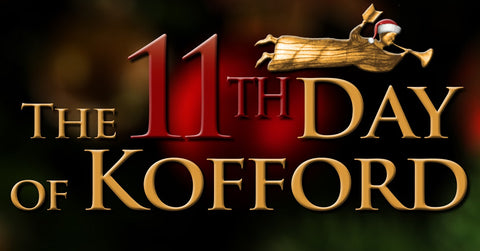
Mormon Image in Literature titles are 30% off December 11th. These special prices are only available for one day, so don't wait!
Orders over $50 qualify for free shipping. Also, local Utah customers can opt to pick up their order directly from our office in Sandy (select this option under the shipping menu).
For more information about the Twelve Days of Kofford holiday sales, click here.
 |
The Mormoness; Or, The Trials Of Mary Maverick: A Narrative Of Real Events Retail: $12.95 |
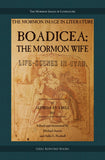 |
Boadicea; the Mormon Wife: Life Scenes in Utah Retail: $15.95 |
On the third day of Kofford: 30% off personal essay titles! December 03 2016

All personal essay titles are 30% off on December 3rd. These special prices are only available for one day, so don't wait!
Orders over $50 qualify for free shipping. Also, local Utah customers can opt to pick up their order directly from our office in Sandy (select this option under the shipping menu).
For more information about the Twelve Days of Kofford holiday sales, click here.
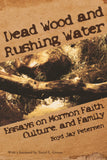 |
Dead Wood and Rushing Water: Essays on Mormon Faith, Culture, and Family Retail: $22.95 |
 |
Mr. Mustard Plaster and Other Mormon Essays Retail: $20.95 |
 |
Writing Ourselves: Essays on Creativity, Craft, and Mormonism Retail: $18.95 |
Twelve Days of Kofford Christmas Sale 2016 November 30 2016
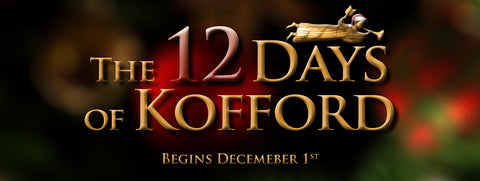
MERRY CHRISTMAS FROM GREG KOFFORD BOOKS
Greg Kofford Books is pleased to announce our annual holiday sale on select popular titles beginning December 1st – December 12th.
Here's how it works: at the stroke of midnight each day, a new blog post will go live on our website listing that day's special offerings along with a discount code that you can enter at check-out to get the holiday price. It's that simple. We will also be posting the daily offering and discount code on our Facebook page at 7am.
*Orders over $50 qualify for free shipping (continental U.S. customers only). Local Utah customers can stop by our office in Sandy to pick up their orders as well. Holiday inventory on some titles may be limited, so be sure to take advantage of the daily sale early.*
To help you plan in advance, here are our scheduled sales:
Day 1 — Brant Gardner titles
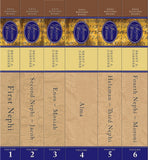 |
Second Witness: Analytical & Contextual Commentary on the Book of Mormon series
|
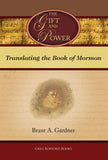 |
The Gift and Power: Translating the Book of Mormon |
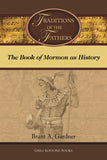 |
Traditions of the Fathers: The Book of Mormon as History Best Religious Non-fiction Award, Association for Mormon Letters |
Day 2 — Adam Miller titles (essays in Mormon theology)
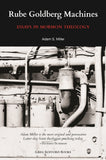 |
Rube Goldberg Machines: Essays in Mormon Theology Retail $18.95 |
 |
Future Mormon: Essays in Mormon Theology Retail: $18.95 |
Day 3 — Personal Essays
 |
Dead Wood and Rushing Water: Essays on Mormon Faith, Culture, and Family Retail: $22.95 |
 |
Mr. Mustard Plaster and Other Mormon Essays by Mary Lithgoe Bradford Retail: $20.95 Sale price: $14.67 |
 |
Writing Ourselves: Essays on Creativity, Craft, and Mormonism Retail: $18.95 |
Day 4 — Blake T. Ostler titles
 |
Exploring Mormon Thought series by Blake T. Ostler 30% off each title |
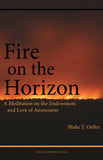 |
Fire on the Horizon: A Meditation on the Endowment and Love of Atonement Retail: $17.95 |
Day 5 — Contemporary Studies in Scripture
 |
Authoring the Old Testament: Genesis — Deuteronomy Retail: $26.95 |
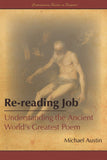 |
Re-reading Job: Understanding the Ancient World's Greatest Poem Retail: $20.95 |
 |
Search, Ponder, and Pray: A Guide to the Gospels Retail: $27.95 |
 |
Beholding the Tree of Life: A Rabbinic Approach to the Book of Mormon Retail: $21.95 |
 |
The Vision of All: Twenty-five Lectures on Isaiah in Nephi's Record Retail: $25.95 |
Day 6 — International Mormonism
 |
The Trek East: Mormonism Meets Japan, 1901–1968 Retail: $39.95 |
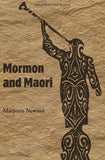 |
Mormon and Maori Retail: $24.95 Best International Book Award, Mormon History Association |
 |
Tiki and Temple: The Mormon Mission in New Zealand, 1854–1958 Retail: $29.95 Best International Book Award, Mormon History Association |
 |
For the Cause of Righteousness: A Global History of Blacks and Mormonism, 1830–2013 Retail: $32.95 Best Book Award, Mormon History Association |
 |
The History of the Mormons in Argentina Retail: $24.95 |
 |
From Above and Below: The Mormon Embrace of Revolution, 1840 – 1940 Retail: $34.95 Best International Book Award, Mormon History Association |
Day 7 — Polygamy titles
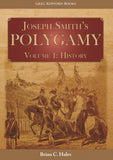 |
Joseph Smith's Polygamy: History and Theology Now in paperback! 30% off each title |
 |
Joseph Smith's Polygamy: Toward a Better Understanding Retail: $19.95 |
 |
Modern Polygamy and Mormon Fundamentalism: The Generations after the Manifesto Retail: $31.95 Best Book Award, John Whitmer Historical Association |
 |
Mormon Polygamous Families: Life in the Principle Retail: $24.95 |
 |
Prisoner for Polygamy: The Memoirs and Letters of Rudger Clawson at the Utah Territorial Penitentiary, 1884–87 Retail: $29.95 |
Day 8 — Contemporary Issues
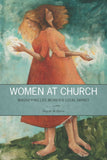 |
Women at Church: Magnifying LDS Women's Local Impact Retail: $21.95 |
 |
Common Ground—Different Opinions: Latter-day Saints and Contemporary Issues Retail: $31.95 |
 |
The Liberal Soul: Applying the Gospel of Jesus Christ in Politics Retail: $22.95 |
 |
Voices for Equality: Ordain Women and Resurgent Mormon Feminism Retail: $32.95 |
Day 9 — Biography
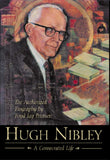 |
Hugh Nibley: A Consecrated Life Retail: $32.95 Best Biography Award, Mormon History Association |
 |
“Swell Suffering”: A Biography of Maurine Whipple Retail: $31.95 Best Biography Award, Mormon History Association |
 |
William B. Smith: In the Shadow of a Prophet Retail: $39.95 Best Biography Award, John Whitmer Historical Association |
 |
The Man Behind the Discourse: A Biography of King Follett Retail: $29.95 |
Day 10 — War and Peace
 |
War & Peace in Our Time: Mormon Perspectives Retail: $29.95 |
 |
Even unto Bloodshed: An LDS Perspective on War Retail: $29.95 |
 |
The End of the World, Plan B: A Guide for the Future Retail: $13.95 |
 |
Saints of Valor: Mormon Medal of Honor Recipients, Updated 2nd Edition Retail: $31.95 |
Day 11 — Mormon Image in Literature
 |
The Mormoness; Or, The Trials Of Mary Maverick: A Narrative Of Real Events Retail: $12.95 |
 |
Boadicea; the Mormon Wife: Life Scenes in Utah Retail: $15.95 |
Day 12 — Ebook Flash Sale — $1.99 for select titles
To be announced. Stay tuned!
Q&A with Jack Harrell, author of Writing Ourselves: Essays on Creativity, Craft, and Mormonism May 30 2016
Pre-order your copy today.
Can you name a few writers who have had the greatest influence on you? What draws you to their work?
My favorite writer is Flannery O’Connor. Her fiction is fantastic, and her essays and letters on writing are full of insight and humor. Back in 1994, at Illinois State University, I did my master’s thesis on her novel Wise Blood. Her work speaks to a lot of Mormons because she’s unapologetic about her Catholic faith. Though her writings are obviously religious, she doesn’t slip into oversimplification or didacticism. And plenty of readers who aren’t religious find satisfaction and meaning in her work. Her writing works on a number of levels. I also appreciate writers like Wallace Stegner, Raymond Carver, and Willa Cather.
Among Mormon writers, Levi Peterson is very important, I think—a must-read. And I think any Mormon interested in good writing should read Virginia Sorensen’s 1963 story collection Where Nothing is Long Ago: Memories of a Mormon Childhood.
I’m drawn to small-town characters and settings in the contemporary West and the Midwest, probably because that’s the world I know best. That’s what I’m interested in writing about, too—telling the stories of ordinary folks in these small towns.
Lately I’ve been reading contemporary philosophers amenable to a religious viewpoint. John Polkinghorne is one I like. He’s an Anglican priest and theologian with two PhDs in physics. I’ve also learned a great deal from the writings of Roger Scruton, especially from his books The Face of God, The Soul of the World, and Beauty.
The last book I read was a Greg Kofford publication: Future Mormon, by Adam S. Miller. It’s great to see a tradition of thoughtful scholarship continue among Latter-day Saints like Miller.
Some label the religious seeker as being on a quest for an epiphany. Can you discuss how epiphany in a spiritual sense is related to epiphany in a creative sense?
Long before James Joyce made it a literary term, the word “epiphany” was a religious term referring to some profound insight from the divine. I believe most religious people, no matter what their faith, seek communion with the divine, or just a connection with something beyond themselves. I think very few people would see the human race as the greatest force or power in the universe; and even if they do, they’d still admit those times when we reach for something greater within us. Isn’t this the quest of most art? To reach for something higher?
Of course, there are a few who would say, “There’s nothing great within us, nothing great beyond us. Therefore, art should express that. Art should be against epiphanies, against transcendence. Art should be being emphatically ugly because ugliness and entropy is all we have.” But that’s a pretty rare position to take, and pretty cynical too.
It seems to me that the very act of creation is rooted in a desire to make something outside of ourselves that expresses what we see or feel within. Maybe every artist is just trying to meet himself or herself, trying to understand and recognize what’s there.
In the sixth chapter, you discuss teaching students to write. You mention the Mormon “struggle to tell the truth.” Why do Mormons struggle with superficiality in their writing?
It’s not just a Mormon struggle. It’s human nature to fall back on easy answers and struggle to tell the truth. We’re all guilty of horizontal thinking: worrying about what the person next door thinks rather than doing what we know to be true. Honesty with ourselves is a normal human struggle too. We all create fictions to justify the way we live and the way we see the world. Some of the lies we tell emerge from our good intentions. We just don’t want to hurt someone’s feelings.
It’s the same with Mormons. We don’t want to hurt people, we’re worried about what our neighbors think, and we want to keep things pleasant. But life isn’t always pleasant. Conflict is at the heart of meaningful stories. If we avoid conflict, we hamstring good stories. The scriptures are full of conflicts. Church history isn’t the simple story that some once thought it to be. There are all kinds of complex layers at work in the scriptures and in Church history and in all our lives.
I think, more and more, we’re going to see that easy answers don’t cut it. We need to face complexities, not avoid them. As the teachings of the Church grow more at odds with secular society, we’re going to have to embrace the complexities of our own position in order to survive. This involves telling the truth.
One of the central messages of Mormonism is that at the potential for redemption is at the center of our existence. The need for redemption assumes that some kind of fall or loss came first. That’s a level of complexity right there—much more than simply saying “the universe is essentially good.” Fall and redemption transcend superficiality every time.
Can you give your take on what makes literature virtuous or praiseworthy?
Yes, I talk about this in an essay on the 13th Article of Faith and how it can be a standard for judging literature.
The root of the word “virtue,” means “manliness,” or, as we’d put it today, “strength.” Implied in that word are concepts like “integrity,” “vigor,” and “power.” In Mormon culture the word “virtue” has become nearly synonymous with “chastity.” Chastity is one aspect of virtue, but the meaning of that word is much broader. I’d say a virtuous book is one that’s powerful, meaningful, and truthful.
“Praiseworthy,” simply means worthy of praise. In that sense, literature that gets good reviews from those who really know what they’re talking about can be called praiseworthy. A reader has to think critically about the praise that comes from someone who simply wants to boost sales, regardless of the quality of the work. The 13th Article of Faith provides a great standard for measuring all these things.
You state that Mormon fiction tends to be “essentially positive in its outlook,” can you summarize why and how that might be a stumbling block towards greater authenticity?
Philosophically, I don’t think an essentially positive outlook is a stumbling block to authenticity. I’d say the same is true in a Mormon theological context as well. In the Mormon view of existence, there is always the potential for a positive outlook, and a positive outcome, because of the atonement. The catch comes when moral agency is introduced. Every child of God can potentially be saved and exalted, but not everyone will, because of agency, because of the way we each can use or misuse our agency.
Maybe it’s this business of agency that introduces a stumbling block to authenticity. When a writer forces a tidy resolution on a character or story, that’s a violation of the “agency,” if you will, of the characters in the story. Another stumbling block arises when a writer approaches the subject matter with a kind of oversimplified “all is well” outlook.
I think the Mormon writer who really understands the depths of Mormonism itself will take a more complex view on writing and of the world. That’s one of the recurring arguments I make in the book, that if we really understand a live our faith, we’ll solve a lot of the problems that lead to bad art.
Mormon writers seem to do well in science fiction and fantasy genres, but struggle in general fiction. Why do you think that is; and in what ways can Mormonism can add a unique voice to general fiction?
I think one factor has to do with language and content. Often a person can write (or read) a science fiction or fantasy novel without dealing with the challenges of vulgar language and sexual scenes. Certainly this isn’t true of all sci-fi/fantasy. But it’s easier to choose authors who don’t go there.
In the mainstream literary genre, sex and language have become pretty common. There’s a reason for this. In the twentieth century, literary fiction grew more transparent about representing the daily lives of ordinary people. People have sex, people swear, and contemporary fictions doesn’t shy away from that. I’m not saying this is a good thing. It’s just the way it is.
I do think that contemporary culture is more vulgar, more irreverent, less sensitive. The Greek root of the word “aesthetic” means “sensitive.” Contrast that word with the word “anesthetic,” which means “the loss of feeling.” Contemporary culture may want to boast that everything is “out there,” that nothing is taboo. And certainly there’s virtue in openness. But we have to be careful. People who go too far into irreverence and subversion might find that they lose something in the bargain.
The language and content factor may not be the reason Mormon writers shy away from general, literary fiction. That’s just a supposition on my part because I really don’t know the answer. I just know that I care more about the problems of a school bus driver living in Rigby, Idaho, than I care about the war between the Ledmendons and the Allickakakials on Zarnack 5.*
Honestly, I think general, literary fiction invites a more thoughtful and measured tone. No one listens to NPR because they want caustic, sensational commentary. Recently l read a great literary novel by Marilynne Robinson, a novel about a Midwestern pastor’s last words to his young son, whom he fathered late in life. The novel is very real about the lives it depicts, but there’s nothing there that would scandalize your grandmother. I’d love to see more novels by Mormons about real Mormons with the meaningful problems that I see every day in my own life and in the lives of those around me. The stories are there, waiting to be told.
And this may not be about writers at all. It may be a reflection of the readers. Could it be that Mormon writers gravitate toward speculative fiction primarily because that’s what sells?
It’s hard to fault writers who want to sell books and are willing to do what it takes to make that happen.
* Editorial note: Greg Kofford Books wishes to apologize to any residents of Zarnack 5 who may find offense in the author's disregard for the ongoing struggles between the Ledmendons and Allickakakials.







